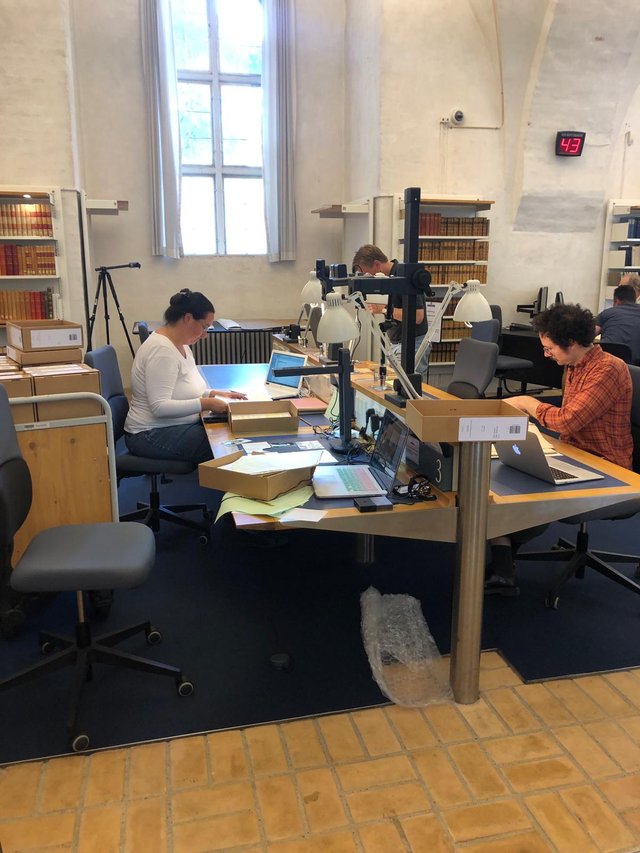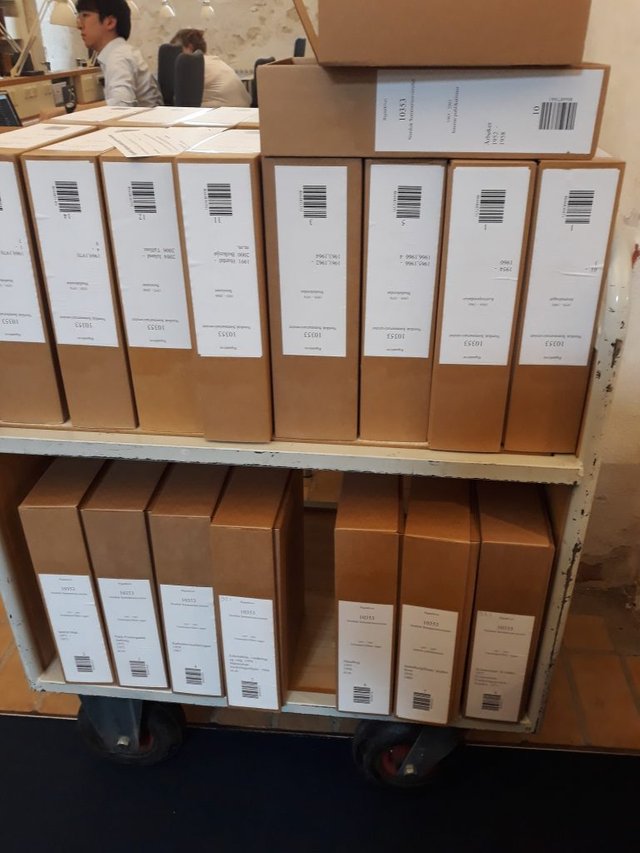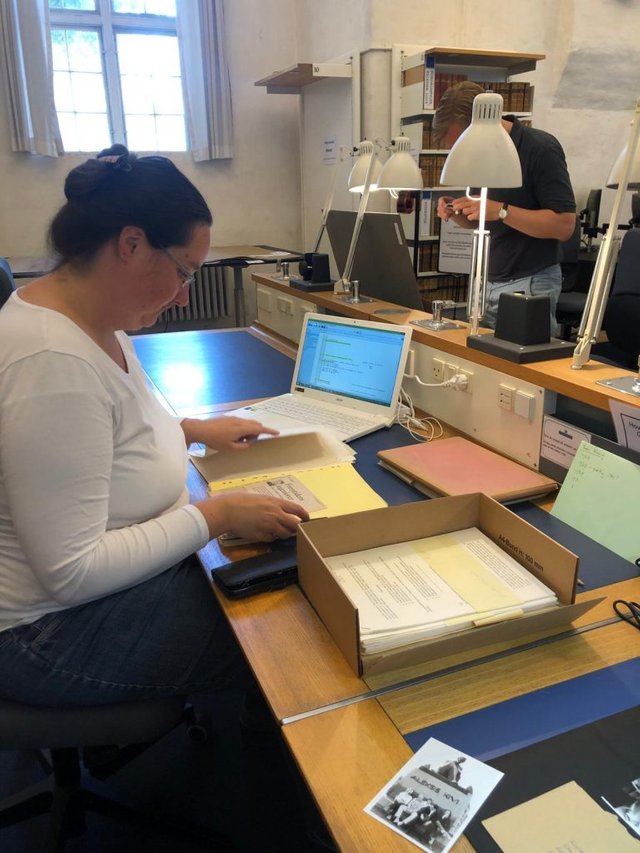Exploring the Nordic Summer University Archive: tracing the conversation over 70 years of NSU existence

My aim with this specific research project (funded by NSU and The Nordics) is to trace the spirit of NSU, to trace the study programs throughout the years and see how they changed. Some things have been written about this, most notably Kritik og Krise written by several NSU-ers and published in 2000 (which can be downloaded here: http://nordic.university/organisation/history/). But the chapter in that book that talks about the study program is mostly anecdotal, and clearly not systematic.
Although there are some things that are more known, like how feminist studies in Scandinavia started at NSU, I want to explore this question more systematically. In this project I want to know everything there is to know about the study program. (Ambitious, right?!) How did it develop over the years? What choices were made, based on what requirements? I want to find out how the conversation changed over the years.
The Nordic Summer University is a voluntary organisation where researchers, artists and basically anybody can start a 'study circle': a topic that is discussed during individual circle meetings in the winter and at the summer session, where all circles meet for some days, a week or even longer. The topics of the study circle were apparently interesting and important enough for people to spend their time and energy on, and attracted other people who were interested to discuss these topics together at the Nordic Summer University. Tracing these conversations at NSU therefore means tracing the conversations of the nordic countries, of what was considered important and fundamental to study together in an interdisciplinary and intellectually stimulating environment.
A puzzle and an adventure
But finding the right box which contains the information I need is an adventure. Because this is how the Archive works, basically: There is 22 meters of material of NSU stored in Copenhagen. But you cannot access these 22 meters, they are stored in different places. So you have to go online, to the Dasiy system, and figure out which box you want to see and order it. Then it takes about three working days for the box to arrive.
But the labelling of the boxes is very general. So even if you know the box contains 1965-1966 'Studiekredse' material, it is not clear what this contains. As I'm interested in the study circles, I ordered many of the boxes from the collection 'studiekredse'. But that turned out not to be the place for me. Or well, not the place to get the full picture. NSU had many local organisations back in the day, which organised local meetings in the winter. Some circles had three or four places where they had representations, which all organised lectures and meetings. And there are many reports of those meetings. How many people attended, which people attended several times. And sometimes even the discussions are noted down. Which is all extremely fascinating, but way too detailed for my research.

Some of the boxes to go through. At the Danish National Archive
As I have only two weeks - which is a long time and a short time at the same time - I need to focus on getting at least the overview of the study program throughout the years. And not just the titels, but the descriptions. So what I end up being really interested in, is how the people of the circles describe their own topic. And finding that kind of information, for all seventy years, is quite a challenge.
And so I order more boxes, the archivist was kind enough to upgrade my account from the normal maximum of 15 boxes at one time to 30, after explaining to him I came from the Netherlands for this specific reason. More boxes to go through, some will still arrive next week (hopefully).
One big help is that there is another researcher who is researching NSU as well for the same project: Karima Klasen. Beside it being very nice to have someone to talk to about whatever treasure you find, it is also useful that she also ordered 15 boxes and we can share these resources. Her process is very different from mine, she is looking at the material visually and artistically whereas I'm reading everything, but that doesn't matter. As you're allowed to only have one box at your desk at any one time, we don't get in each other's way anyway.
So many interesting things to distract me!
As I'm also a board member of NSU, mostly involved in the financial side of NSU and the future of NSU, I sometimes get very distracted. When finding the statues of 1965, for instance. Although that is also interesting from the point of view of my present study: how did the statues talk about the study program, and how has that changed? So I take pictures, and note down what I have taken pictures of so I can make sense of it later (hopefully), and I move on.
And then I opened a box which contained many budgets. Okay, I allowed myself to take some pictures of it, but I was forcing myself to go on. Until I realised in the 60s and 70s the finances were organised very differently, and the study circles were much more at the center of also the financial side of NSU. So, perhaps this will make for another (short) chapter in the book I'm intending to write about all the findings I made.
And then I found a study circle about cybertechnology, so had to send some pictures of that material to some friends who are organising the current circle on cybiosis, obviously. And then I found a (VERY OLD!) picture of someone who is STILL coming to NSU after all those years, so I had to send that to him as well, of course. Or I found a description of the deadlines that the board was conveying to the study circle coordinators in 1968... and of course I had to show that to the present board members, to show how the NSU board is struggling with getting coordinators to stick to deadlines for at least 40 years!
Gathering a complete 70-year timeline
But, overall, I've mostly been working hard on gathering all the information to build a complete 70-year timeline. Learning a lot of Danish and Swedish in the meantime - and also realising that when I find a document particularly difficult to read it is probably written in Norwegian. After four-and-a-half days in the archive, working non-stop in the hours that I have available as the opening times are very limited and I simply cannot stay any longer than the two weeks I have right now, I have gathered more than half the data I need. Up to 1980 I have the timeline complete, except for the year 1953 (and only a partial list of study circles in 1963). There are some boxes which might still surprise me and bring me the missing pieces, but I'm not very hopeful for 1953.
Only today I started looking at the years beyond 1980. I need to find all the data up until 2013, after which it can be found at the present website of NSU: nordic.university. I have written the formed webmater of the old NSU website, where at least the information from 2000 onwards should have been once visible, hopefully there is a saved version of that somewhere. Because the documents in the archive from those years, printed out hotmail emails mostly, refer to that former website. Aaagh!
So, the adventure continues, one more week. I will keep you updated on my progress. Although after that week the real work starts. I have 700 pictures of important documents so far, with the information I'll need. GOing through those, making sense of the timeline, and writing it all up, will be most of the work. But at least I'm enjoying myself, tremendously.

Me at work in the archive. Picture by Karima Klasen
Posted from my blog with SteemPress : https://www.nobyeni.com/2019/08/30/exploring-the-nordic-summer-university-archive-tracing-the-conversation-over-70-years-of-nsu-existence/
Thank you for sharing your work and experience with us @nobyeni,